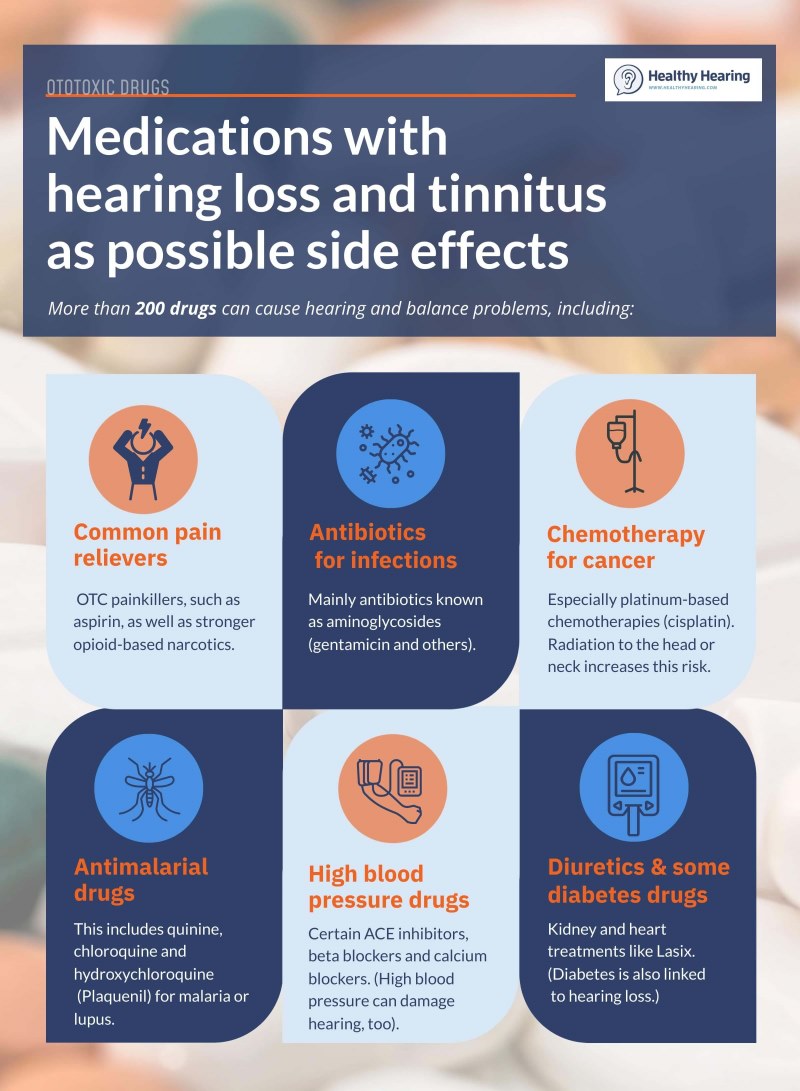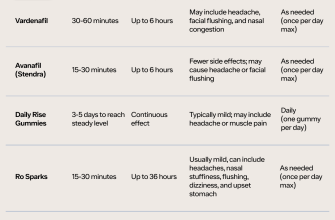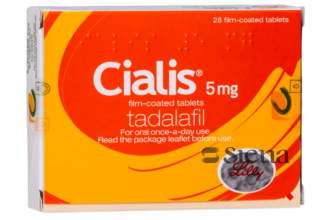Experiencing ringing in your ears after taking Cialis? This isn’t uncommon. While Cialis isn’t directly linked to tinnitus (ringing in the ears) as a primary side effect in clinical trials, some users report this as a potential adverse reaction. Let’s explore potential causes and steps you can take.
One possibility is an indirect connection. High blood pressure, a known risk factor for tinnitus, can be exacerbated by certain medications. If you have underlying hypertension, Cialis might interact with existing conditions, potentially intensifying ear ringing. Therefore, maintaining healthy blood pressure through diet and exercise is crucial, and discussing this with your doctor is paramount.
Another factor to consider is your overall health. Pre-existing conditions, such as cardiovascular disease or hearing loss, can increase your susceptibility to tinnitus. Furthermore, certain medications you are taking concurrently with Cialis might contribute to the problem. A thorough discussion with your physician regarding your complete medical history and current medications is highly recommended.
If you’re experiencing tinnitus after taking Cialis, consult your doctor immediately. They can perform a comprehensive evaluation to determine the underlying cause and recommend appropriate management strategies, including adjusting your medication or suggesting alternative treatments. Early intervention is key for effective tinnitus management.
- Cialis Ringing in Ears: Understanding the Potential Link
- Cialis and Tinnitus: Frequency and Severity
- Identifying Cialis-Related Tinnitus: Symptoms and Onset
- When to Seek Medical Attention for Cialis-Induced Tinnitus
- Urgent Care Situations
- Ongoing Tinnitus
- Managing Cialis-Related Tinnitus: Lifestyle Changes and Medical Interventions
- Dietary Adjustments
- Medical Approaches
- Seeking Professional Help
- Lifestyle Modifications
- Important Note
- Alternative Treatments for Tinnitus and Considerations When Taking Cialis
Cialis Ringing in Ears: Understanding the Potential Link
Consult your doctor immediately if you experience tinnitus (ringing in the ears) after taking Cialis. While not a commonly reported side effect, a connection is possible.
Cialis, like other medications affecting blood flow, might indirectly contribute to tinnitus. Increased blood pressure or changes in blood vessel dilation could potentially affect the inner ear, leading to this symptom. It’s crucial to note this isn’t a guaranteed cause-and-effect relationship. Many factors influence tinnitus.
Other medications, underlying health conditions, and even noise exposure can cause ringing in the ears. Your physician will conduct a thorough examination to determine the root cause of your tinnitus. This might involve a hearing test and review of your medical history, including all medications.
If tinnitus persists or worsens after taking Cialis, discontinue use and contact your doctor for alternative treatment options. They can assess the severity of your symptoms and recommend appropriate management strategies. Accurate diagnosis is key to effective treatment.
Remember to always inform your doctor about all medications you’re taking, including over-the-counter drugs and supplements. This helps them make informed decisions regarding your care and minimize potential drug interactions.
Cialis and Tinnitus: Frequency and Severity
Reports linking Cialis use to tinnitus are relatively infrequent. However, studies show a potential correlation, though causation remains unproven. The frequency is difficult to pinpoint precisely due to underreporting and various confounding factors like pre-existing conditions or other medications.
Severity varies significantly. Some men report a mild, barely perceptible ringing, while others describe a loud, disruptive sound affecting their quality of life. The duration also differs, ranging from temporary episodes to persistent tinnitus.
Factors influencing severity: Dosage, individual sensitivity, and pre-existing hearing problems play a role. Higher doses might increase the risk of more severe tinnitus. Individuals with prior hearing issues may experience more pronounced effects.
Important Note: This information is not a substitute for professional medical advice. If you experience tinnitus after taking Cialis, consult your doctor immediately. They can properly assess your situation and advise on appropriate management strategies.
Recommendations: Open communication with your doctor is crucial. Describe your symptoms in detail, including the onset, duration, and intensity of the tinnitus. Your doctor might adjust your medication or suggest other treatment options.
Identifying Cialis-Related Tinnitus: Symptoms and Onset
Cialis-induced tinnitus usually manifests as a ringing, buzzing, hissing, or clicking sound in one or both ears. The sound’s intensity varies; some describe it as a faint whisper, while others experience a loud, disruptive noise.
The onset can be immediate, appearing shortly after taking Cialis, or delayed, developing days or even weeks later. This variability makes pinpointing the cause challenging. Note any changes in hearing alongside the tinnitus.
Here’s a table summarizing key characteristics:
| Symptom | Description |
|---|---|
| Sound Type | Ringing, buzzing, hissing, clicking |
| Intensity | Varies widely; can be faint or loud |
| Onset | Immediate or delayed (days to weeks) |
| Duration | Can be temporary or persistent |
| Other Symptoms | Hearing changes (loss, muffled sound), dizziness, headache |
If you experience tinnitus after taking Cialis, seek medical attention. Accurate diagnosis requires a medical professional to rule out other potential causes. Thorough assessment is crucial for appropriate management.
When to Seek Medical Attention for Cialis-Induced Tinnitus
Contact your doctor immediately if your tinnitus is severe, persistent, or accompanied by other symptoms. This includes sudden onset hearing loss, dizziness, or a feeling of fullness in your ears. Don’t wait to see if it improves on its own.
Urgent Care Situations
Seek immediate medical help if you experience a sudden, significant worsening of your tinnitus alongside visual changes, such as blurred vision or double vision, or neurological symptoms like weakness, numbness, or difficulty speaking. These could indicate a more serious underlying condition requiring prompt attention.
Ongoing Tinnitus
If your tinnitus related to Cialis use persists for more than a few days, schedule an appointment with your physician. They can assess the situation, rule out other potential causes, and discuss management strategies. Your doctor may adjust your medication or recommend other treatments.
Managing Cialis-Related Tinnitus: Lifestyle Changes and Medical Interventions
Reduce your caffeine and alcohol intake. These substances can exacerbate tinnitus symptoms. Aim for moderate consumption or eliminate them entirely to see if it improves your condition.
Manage stress effectively. Stress significantly impacts tinnitus. Incorporate relaxation techniques like deep breathing exercises, yoga, or meditation into your daily routine. Consider professional guidance if needed.
Dietary Adjustments
Maintain a balanced diet rich in antioxidants. Antioxidants combat oxidative stress, a potential tinnitus contributor. Focus on fruits, vegetables, and whole grains. A registered dietitian can help create a personalized plan.
Limit your sodium intake. High sodium diets can affect blood pressure and potentially worsen tinnitus. Consult your doctor for sodium recommendations based on your individual health needs.
Medical Approaches
Discuss your tinnitus with your doctor. They can rule out other underlying causes and recommend appropriate management strategies. This could include hearing tests and potential referrals to specialists.
Explore sound therapy options. White noise generators or tinnitus maskers can help reduce the perception of tinnitus. Consult an audiologist for personalized recommendations on devices and strategies.
Seeking Professional Help
Consider cognitive behavioral therapy (CBT). CBT helps you manage the emotional and psychological impact of tinnitus, improving your ability to cope with persistent symptoms.
Explore medication options with your doctor. While there’s no cure for tinnitus, some medications can help manage associated anxiety or depression, potentially making tinnitus more manageable.
Lifestyle Modifications
Protect your hearing. Avoid exposure to loud noises by using hearing protection in noisy environments. This preventative measure can reduce the risk of future hearing problems and worsening tinnitus.
Get sufficient sleep. Sleep deprivation intensifies tinnitus. Establish a consistent sleep schedule and create a relaxing bedtime routine to promote quality sleep.
Important Note
This information is for general knowledge and does not substitute professional medical advice. Always consult your doctor before making changes to your medication or treatment plan.
Alternative Treatments for Tinnitus and Considerations When Taking Cialis
Experiencing tinnitus while taking Cialis? Let’s explore some alternative approaches to manage your tinnitus. Remember to always consult your doctor before starting any new treatment, especially if you’re on medication like Cialis.
Lifestyle Adjustments:
- Reduce Caffeine and Alcohol Intake: These substances can exacerbate tinnitus symptoms. Gradually decrease consumption to assess the impact.
- Manage Stress: Stress significantly affects tinnitus. Explore relaxation techniques like meditation, yoga, or deep breathing exercises.
- Improve Sleep Hygiene: Aim for 7-9 hours of quality sleep per night. Establish a regular sleep schedule and create a relaxing bedtime routine.
- Dietary Changes: A balanced diet rich in antioxidants may help. Consider consulting a nutritionist for personalized guidance.
Therapeutic Interventions:
- Sound Therapy: White noise generators or tinnitus maskers can help reduce the perception of tinnitus. Experiment with different sounds to find what works best.
- Cognitive Behavioral Therapy (CBT): CBT can help you manage the emotional distress associated with tinnitus by changing negative thought patterns and behaviors.
- Tinnitus Retraining Therapy (TRT): This therapy involves counseling and sound therapy to help your brain adapt to the sound of tinnitus.
Cialis Interactions:
- Report Tinnitus: Inform your doctor immediately if you develop tinnitus after starting Cialis. They can evaluate the potential connection and adjust your treatment accordingly.
- Medication Review: Discuss all medications and supplements you take with your physician to identify potential interactions. Certain combinations can increase the risk of side effects, including tinnitus.
- Dosage Adjustment: In some cases, your doctor might suggest adjusting your Cialis dosage to minimize side effects. Never change your medication dosage without consulting your physician.
Remember, these are suggestions, and individual responses vary. A personalized approach guided by your physician is crucial for effective tinnitus management while taking Cialis.








